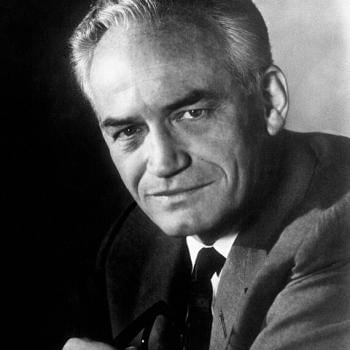Last year I was asked to speak at a well-known conservative evangelical seminary. Initially, I was surprised this particular institution even wanted to address the topic of homosexuality and the church publicly, let alone invite someone like myself to facilitate the conversation, since it's not my goal to change lesbian, gay, bisexual and transgender (LGBT) people to be straight. So I asked them what they hoped to achieve with this campus-wide lecture. They responded thus:
We fear there might be homosexuals who will want to attend our seminary in the future, and we really don't want that to happen. Just in case some get accepted, because they might lie on their application or just don't tell anyone, we need to know how to handle it.
This is, for several reasons, quite a disturbing statement.
First there is the presupposition that these LGBT people are inherently devious and deceptive—and that they, outside of a change to their sexual orientation, cannot possibly align with the seminary's theological views.
But the second and most important objection stems from the fact that I personally knew several things to be true. LGBT people attended and graduated from that institution, remaining "in the closet" throughout their degree program for fear of the repercussions of honesty. And those LGBT people who did come out, while still students, were expelled from the school for their unwillingness to attend mandatory counseling to "become" straight. In other words, the seminary administration already knew that gay and lesbian students attended the school, and they also already knew what happened to those students when their orientation was uncovered.
Naturally, questions swirled in my head. What were the real motives of their invitation? When I confronted them about the aforementioned facts, they denied them outright. They said they had no knowledge of gay students who came out and were forced out of the school.
I ended that particular conversion more confused than I had been when it began. Yet I thought back to one of the most prominent overarching principles of cultural and religious engagement that's exemplified in the life of Jesus: Jesus was never the first person to walk away, and he sought always to engage everybody whether or not they were in agreement. Jesus was concerned to communicate his message faithfully. He would not be scared away by a difference of opinion.
With that in mind, I agreed to speak—and I did so for free, because I knew that this presented a unique opportunity to communicate a message of love and reconciliation between "opposing" communities. I could be faithful to that message, whether or not the seminary's actions communicated love and reconciliation. In the worst case scenario, the seminary administration and students would despise me and what I had to say, and would never invite me back. But in the best case scenario, a different message of peaceful and productive engagement would be heard and felt upon this seminary campus, and a handful of students (or even administrators) would commit themselves to changing the campus culture and discerning what it means to love all students within that context.
I also believed the most powerful thing I could do on this particular campus was to bring two friends who had attended the seminary—a male in his fifties who had concealed his orientation and graduated, and a young woman in her mid-twenties who transferred out of the seminary before she announced her orientation because the administration had kicked her friend out of the school when her friend came out the prior semester.
On the evening of the event, I brought the two former students, and all of the professors and administrators (unaware that the students had come out) were thrilled to see them. On stage, I described a few bridge-building principles between the LGBT community and the conservative Christian world, principles I've learned over the past ten years living in the LGBT neighborhood of Boystown in Chicago. Then I began to tell my story, and invited my two friends to share their stories. Everyone in the auditorium gave them a generous round of applause, as they were excited to hear of two alumni working in Chicago with the Marin Foundation.
Then those two friends, standing upon the auditorium stage, came out to everyone. One by one, they described what it was like to grow up, attend Christian colleges, and then attend this conservative seminary, even though they knew that they were gay. The older gentleman explained how difficult it had been to remain closeted until after graduation, and the young woman explained why she had felt the need to transfer. The main theme was one of sorrow. They were saddened that they were surrounded by Christians, Christ-ones, and yet they felt there was no one they could trust. Separated by 30 years, this gay man and lesbian woman realized that nothing had changed.




